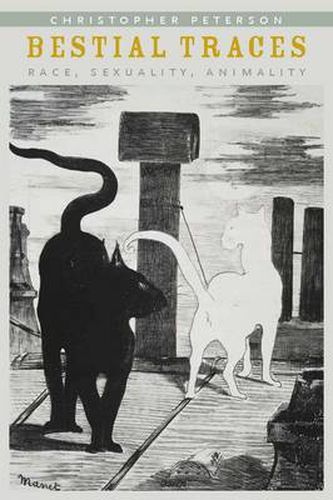Readings Newsletter
Become a Readings Member to make your shopping experience even easier.
Sign in or sign up for free!
You’re not far away from qualifying for FREE standard shipping within Australia
You’ve qualified for FREE standard shipping within Australia
The cart is loading…






This title is printed to order. This book may have been self-published. If so, we cannot guarantee the quality of the content. In the main most books will have gone through the editing process however some may not. We therefore suggest that you be aware of this before ordering this book. If in doubt check either the author or publisher’s details as we are unable to accept any returns unless they are faulty. Please contact us if you have any questions.
On February 18th, 2009, Sean Delonas published a controversial cartoon in the New York Post depicting two policemen shooting and killing a monkey with the caption: They’ll have to find someone else to write the next stimulus bill. On the adjoining page was a photo of President Barack Obama signing this very piece of legislation into law. Although public debate over the cartoon has centered entirely on its potentially racist overtones, we might ask from a Darwinian perspective how the stereotype of the black ape works to disavow a universally shared human apehood. How might we comprehend animality in non-pejorative terms?
Whereas in contemporary race and sexuality studies the topic of animality emerges almost exclusively in order to index the dehumanization that makes discrimination possible, Bestial Traces argues that a more fundamental disavowal of human animality conditions the bestialization of racial and sexual minorities. Hence, when conservative politicians such as Senator Rick Santorum equate homosexuality with bestiality, they betray an anxious effort to deny the animality inherent in all sexuality.
Focusing on literary texts by Edgar Allan Poe, Joel Chandler Harris, Richard Wright, Philip Roth, and J.M. Coetzee, together with philosophical texts by Derrida, Heidegger, Agamben, Freud, and Nietzsche, Peterson maintains that the representation of social and political others as animals can be mitigated but never finally abolished. Insofar as humanizing the abject only vacates the structurally empty and infinitely transposable position of the animal, he argues that all forms of belonging-no matter how open and hospitable they are toward others-inevitably produce beasts whose exclusion contradicts our apparent desire for nonviolence. While one might argue that absolute political equality and inclusion remain desirable-even if ultimately unattainable-ideals, Bestial Traces shows that by maintaining such principles we exacerbate rather than ameliorate violence precisely by failing to confront how discrimination and exclusion condition all social relations.
$9.00 standard shipping within Australia
FREE standard shipping within Australia for orders over $100.00
Express & International shipping calculated at checkout
This title is printed to order. This book may have been self-published. If so, we cannot guarantee the quality of the content. In the main most books will have gone through the editing process however some may not. We therefore suggest that you be aware of this before ordering this book. If in doubt check either the author or publisher’s details as we are unable to accept any returns unless they are faulty. Please contact us if you have any questions.
On February 18th, 2009, Sean Delonas published a controversial cartoon in the New York Post depicting two policemen shooting and killing a monkey with the caption: They’ll have to find someone else to write the next stimulus bill. On the adjoining page was a photo of President Barack Obama signing this very piece of legislation into law. Although public debate over the cartoon has centered entirely on its potentially racist overtones, we might ask from a Darwinian perspective how the stereotype of the black ape works to disavow a universally shared human apehood. How might we comprehend animality in non-pejorative terms?
Whereas in contemporary race and sexuality studies the topic of animality emerges almost exclusively in order to index the dehumanization that makes discrimination possible, Bestial Traces argues that a more fundamental disavowal of human animality conditions the bestialization of racial and sexual minorities. Hence, when conservative politicians such as Senator Rick Santorum equate homosexuality with bestiality, they betray an anxious effort to deny the animality inherent in all sexuality.
Focusing on literary texts by Edgar Allan Poe, Joel Chandler Harris, Richard Wright, Philip Roth, and J.M. Coetzee, together with philosophical texts by Derrida, Heidegger, Agamben, Freud, and Nietzsche, Peterson maintains that the representation of social and political others as animals can be mitigated but never finally abolished. Insofar as humanizing the abject only vacates the structurally empty and infinitely transposable position of the animal, he argues that all forms of belonging-no matter how open and hospitable they are toward others-inevitably produce beasts whose exclusion contradicts our apparent desire for nonviolence. While one might argue that absolute political equality and inclusion remain desirable-even if ultimately unattainable-ideals, Bestial Traces shows that by maintaining such principles we exacerbate rather than ameliorate violence precisely by failing to confront how discrimination and exclusion condition all social relations.